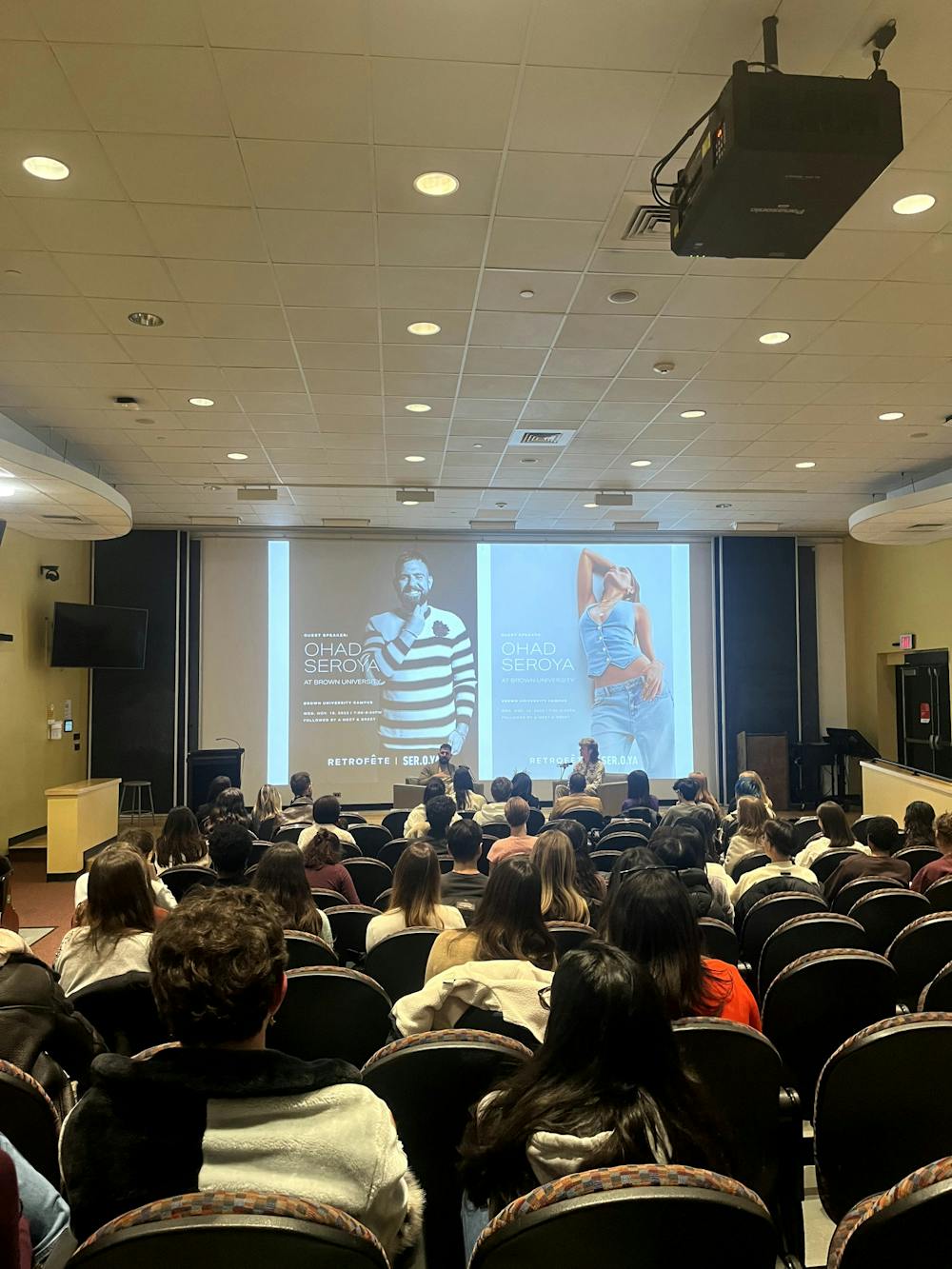Ohad Seroya, luxury clothing brand Retrofête’s founder and executive director, visited the University for a talk with Fashion@Brown Wednesday evening.
The Israeli designer and businessman founded the multi-label design showroom Mint in New York City as well as two of his own labels, Retrofête and a more contemporary clothing brand that shares his name. Seroya engaged students as he discussed a variety of topics, including his childhood in Israel, opening his first boutique at 22 and moving to New York to launch his career.
Held at the List Art Center, the event consisted of an interview with Seroya moderated by Seabass Immonen ’23, Brown-RISD Dual Degree student and director of the F@B Design Team. After the interview, students had the opportunity to participate in a meet-and-greet with the designer.
After being introduced by F@B Co-director Natalia Brown ’23, Seroya stepped onto the stage wearing a monochrome beige outfit from his namesake brand.
Seroya sprinkled his passionate responses with occasional jokes. “It’s my fan,” he said, chuckling as the wind made the room’s side door rattle as if someone was banging on the door.
After explaining that his brand Retrofête is meant to serve as “a party scene in your closet” that celebrates confidence and sexiness, Seroya delved into his childhood. He revealed that his mother used to work as a cleaning lady and that he would often accompany her to jobs. Through this experience, he and his mother were exposed to wealthier people’s wardrobes.
Even though they did not have a lot of money, Seroya gushed about his mother’s style and said that she “would always look like a superstar, … looking richer than the richer people.”
He began creating his own designs at age 16 after working at a local Diesel, an Italian clothing brand. Because he had to wear clothes from the store as an employee, he finally had access to the quality fabrics he so admired. He said he would cut, roll and wash the clothes in ways that would make them look unique.
Whrn people started asking him where he got his clothes, he said he had a distinct thought: “Let’s make some money, honey.” He began selling his own bleached jeans and re-designed t-shirts.
Seroya eventually opened his own boutique in Tel Aviv. Though it didn’t make much money, he was not discouraged. He later moved to New York to open Mint showroom and eventually Retrofête and Seroya.
“Today, I go to Israel like a king,” Seroya said.
He said that he lets every job he does teach him something different. From being a waiter, he learned to be polite to clients no matter what; from working as a choreographer, he learned how to lead groups of people; and from his job as a photographer, he learned technical skills that he still uses in photo shoots today.
Seroya said that he was scared of starting his own brand at first, but then his husband encouraged him to overcome his fears and he launched Retrofête. He added that persistent effort was key to the brand’s success: After one distributor initially turned down his collection, Seroya re-worked the entire line and led a new photoshoot.
“It’s not a lookbook, it’s a brand,” he recalled telling the model at that shoot. Her pictures convinced luxury retailers FWRD and Barneys to sell his designs.
When asked what advice he would give to those aspiring to have a career in fashion, Seroya emphasized being patient — “something that I’m not” — and listening. He attributed much of his success to the people around him: from his interns to his mother to his husband. He emphasized that even though you do not have to take everyone’s advice, you have to be open to what people say and accept some feedback.
Some audience members emerged inspired from the conversation with Seroya. “Listening to his story was just super eye-opening,” said F@B Director of Event Operations Erika Luter ’24.
“One of the most insightful things is that being a designer is not only designing,” Brown said. “He’s more of a businessman now.”
To some, the takeaways were less concrete. Rhode Island School of Design student Kaitung Yeung remarked, “I liked his vibe.”





